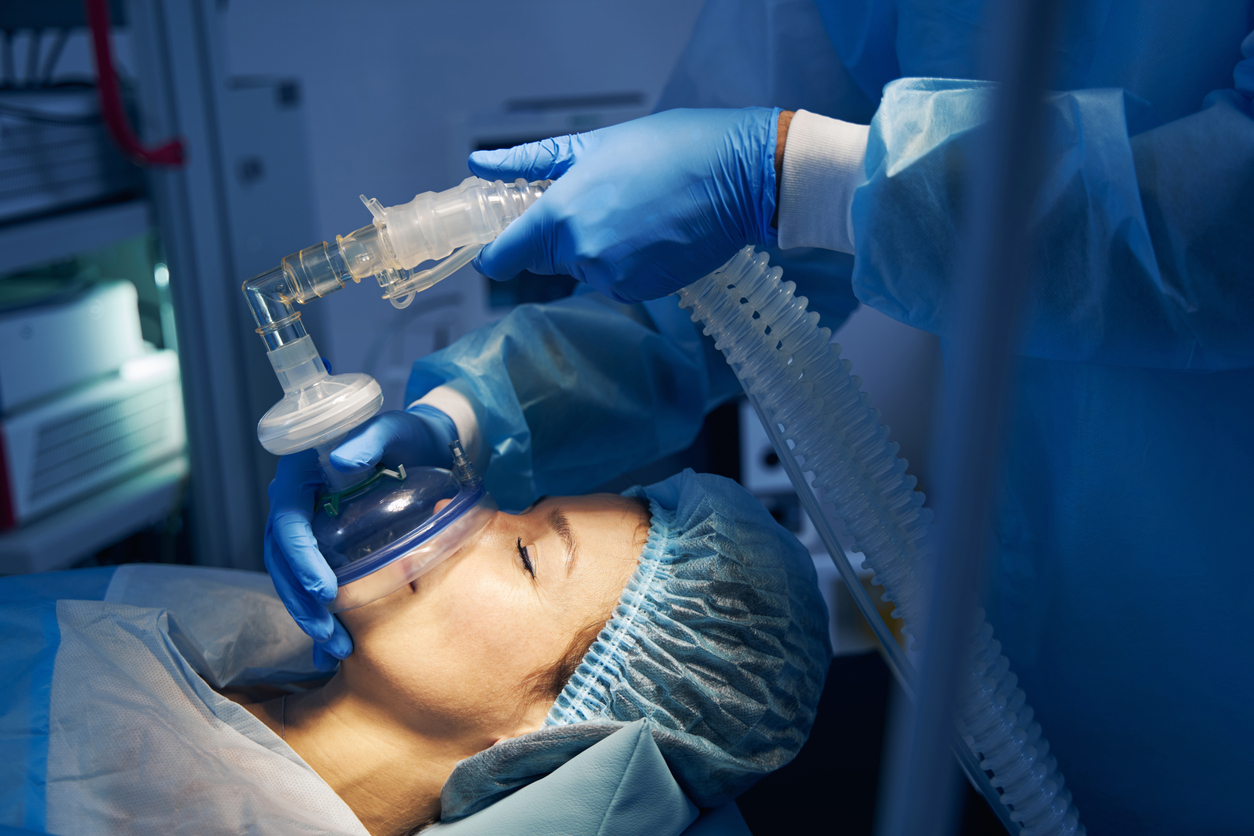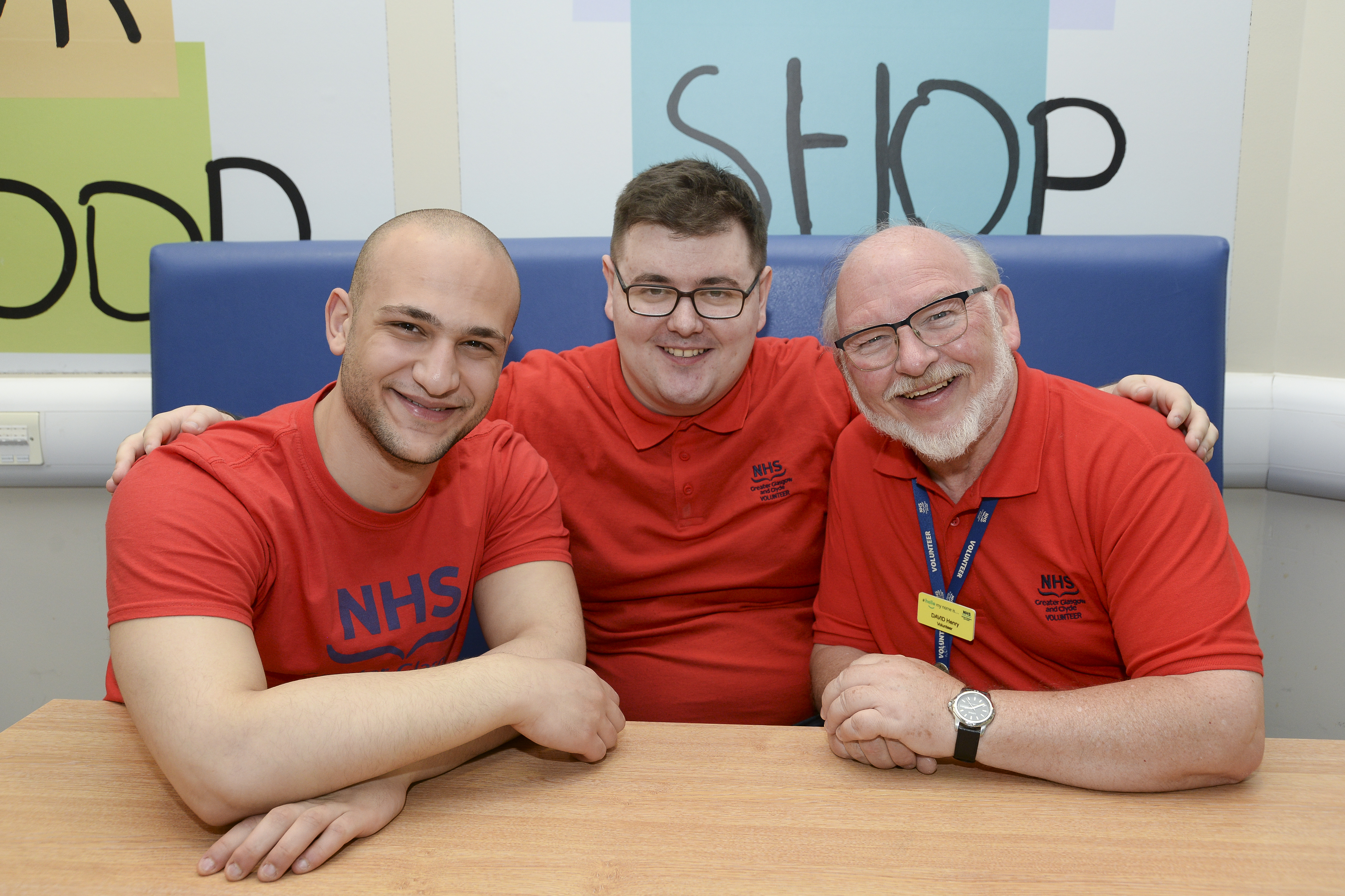Previous
Medicine
To become an anaesthetist, you’ll need an undergraduate degree in medicine. You’ll then work as a resident doctor for 2 years. After this, you must complete 7 to 8 years of postgraduate training and pass the Fellowship of the Royal College of Anaesthetists examinations.
Anaesthetists provide anaesthesia care before, during, and after surgery. They also provide pain management support for childbirth and diagnostic procedures where a general or local anaesthetic may be needed.
As well as supporting patients during planned or unplanned surgery, anaesthetists also work in:
They are qualified doctors who must be registered with the General Medical Council (GMC) to work in the NHS.

To get into medical school, useful school subjects include:
Speak to your guidance teacher or careers adviser about subjects offered at your school. You should also contact medical schools to learn more about their entry requirements.
Reach is a national project that supports senior school pupils from non-traditional backgrounds who want to study medicine. Universities offer on-campus events to help you gain insight into their undergraduate degree programme. You can also access the following:

You may find it helpful to get some healthcare experience by doing a work placement or volunteering. You’ll get training, increase your knowledge, and learn new skills. This could help you when applying to medical school or for medical training in NHSScotland.
There are 5 universities where you can study medicine in Scotland:
If you’re at school, thinking about changing careers or returning to education as an adult learner, there are many different routes into medical school.
To become an anaesthetist, you’ll need to complete a degree in medicine (MBChB) at SCQF level 10.
Standard entry medicine degree programmes take 5 to 6 years to complete, studying full-time.
You should contact each medical school to find out about specific entry requirements.
Widening participation supports adult learners who want to go to university. If you’re an adult with few or no qualifications, you could get into higher education through the Scottish Wider Access Programme (SWAP).
This access programme will help you get the entry qualifications you need to study medicine. Find out more about SWAP Access to Medical Studies.
Several gateway programmes are available at medical schools in Scotland. These programmes provide a supportive route to medical school if you're not immediately ready to start a degree course.
You should contact each medical school to find out more about their gateway programmes.
If you already have an honours degree at SCQF level 10, you can choose this route to study medicine. Some universities offer an accelerated 4-year medical graduate entry programme. To apply, you must meet the academic and non-academic requirements set out by the universities.
Examples of graduate programmes include the following:
You should contact each medical school to find out about their graduate entry programme requirements.
Medical schools select applicants for their degree programmes using aptitude tests, UCAS applications, academic qualifications, and interviews.
If you apply to medical school via any of these routes, you’ll need to sit the University Clinical Aptitude Test (UCAT):
Find out more about the UCAT computer-based admissions test.
If you’re applying for a graduate entry programme, you’ll sit the Graduate Medical School Admissions Test (GAMSAT).
At medical school, you’ll have lectures, tutorials, and simulation-based learning where you’ll do the following:
You’ll also have clinical placements to help you get experience in a wide range of clinical areas, such as:
Search for undergraduate medical degree programmes on My World of Work.
When you graduate from medical school, you’ll need to apply to the General Medical Council (GMC) for provisional registration with a licence to practise. This will allow you to take the next step in your medical training and join a foundation programme.
Find out more about provisional registration.
A foundation programme is the first step in your postgraduate training after you graduate from medical school. You’ll also learn the skills you’ll need to deliver safe and effective person-centred care.
The Scottish Foundation School’s 2-year work-based training programme offers experience in a range of specialties and geographic locations. When you have a place on a foundation programme, you must apply for provisional registration with the GMC.
In your first year as a foundation doctor in training, you’ll develop the knowledge, skills, and competencies you gained in medical school. When you successfully complete your F1 year, you’ll be issued a Foundation Year 1 Certificate of Completion document.
The Scottish Foundation School will send a certificate of completion to the GMC so you can apply for full registration. You’ll also progress to the second year of the foundation programme.
During your F2 year, you’ll continue to develop your clinical and professional knowledge. This will prepare you for the next stage of your medical training.
At the end of your F2 year, you’ll be issued a Foundation Programme Certificate of Completion (FPCC), ready to apply for the UK anaesthesia training programme.
Find out more about foundation training in Scotland.
The UK anaesthesia training programme has 3 stages. Before you start training to become an anaesthetist, you should register with the Royal College of Anaesthetists (RCoA).
You’ll have practical assessments and written and oral exams. You must pass these to progress in the training programme.
Throughout your training, you’ll also be expected to undertake a range of other activities, such as:
These all form a key part of practising as a consultant in the NHS and performing your clinical duties.
All doctors in training receive an annual review towards the end of their training year. The Annual Review of Competence Progression (ARCP) is used to:
A panel of senior doctors and medical educators decides ARCP outcomes. They will determine if you’re ready to progress to the next step in your training.
In stage 1, you’ll need to complete core anaesthesia training or the Acute Care Common Stem (ACCS) training programme. Entry to these programmes is through the Scottish national recruitment process managed by the Anaesthetics National Recruitment Office (ANRO).
Core anaesthesia training
Core anaesthesia training is a 3-year programme. To apply, you must sit and pass the Multi-Specialty Recruitment Assessment (MSRA) exam and then be competitively ranked at interview.
During training, you’ll learn the basics of delivering anaesthetic care, including:
• gaining experience in a range of surgical specialties, pre-operative assessment and pain clinics, obstetrics, and intensive care
• pre-operative assessment and optimisation of patients to reduce the risk of complications during anaesthetic care
• preparing basic anaesthetic drugs
• simulation training, including critical incidents, airway management, and adult and paediatric resuscitation
• blood transfusion training
• providing general anaesthesia independently for lower-risk patients having simple surgical procedures
An educational supervisor will support you throughout your training. You’ll also have a clinical supervisor for each hospital placement. Your supervised learning activities and reflections must be recorded on the Royal College of Anaesthetists Lifelong Learning Platform. You must also keep a detailed logbook of all cases and procedures you have undertaken.
Usually, within the first 3 to 6 months of training, you must complete the Initial Assessment of Competence (IAC). This is legally required to allow you to give an anaesthetic without another qualified anaesthetist present.
Within the first 2 years, you’ll also complete the Initial Assessment of Competence in Obstetric Anaesthesia (IACOA). This allows you to work on labour wards, inserting epidural catheters for labour pain relief and providing anaesthesia for caesarean births.
Throughout stage 1 training, you’ll carry out most cases with the direct support of a more senior anaesthetist. You’ll also gradually increase your exposure to working independently.
By the end of your third year, you must take and pass the Fellowship of the Royal College of Anaesthetists (FRCA) primary exams. You can then apply to stage 2 of the UK anaesthesia training programme.
Find out more about core anaesthesia training.
Acute Care Common Stem training
Acute Care Common Stem (ACCS) training is a 4-year programme where an educational supervisor will support you. Your main specialty will be anaesthetics, but you’ll also receive training in the following:
• emergency medicine
• intensive care medicine
• internal medicine
You’ll need to sit and pass the Multi-Specialty Recruitment Assessment (MSRA) exam to apply.
Typically, you’ll start with 6 months of Emergency Medicine and 6 months of Internal Medicine. You’ll then spend the next 3 years split between Anaesthetics (30 months) and Intensive Care (6 months). Within the first 6 months of starting your anaesthetics training time, you must complete the Initial Assessment of Competence (IAC) as above.
Training is delivered in a range of ways, including:
supervised clinical experience
• simulated practice
• supervised practice
• training courses
• eLearning modules
You’ll record all your learning in your logbook and ePortfolio. You’ll also have regular assessments, including workplace-based assessments and senior clinician panel reviews.
Once you’ve completed the ACCS curriculum, you can apply to stage 2 of the UK anaesthesia training programme.
Find out more about the ACCS training.
In stage 2, you’ll continue to develop your anaesthesia knowledge and skills. This includes training in subspecialties such as paediatric, neuro, and cardiothoracic anaesthesia. You’ll also receive training in intensive care medicine.
After you complete stage 2 training, you’ll take and pass the Fellowship of the Royal College of Anaesthetists (FRCA) final exams.
Find out more about the FRCA final written and oral exams.
In stage 3, you’ll progress to a level where you can practise as an anaesthetist unsupervised. You’ll also focus your training on one or more areas of special interest, such as:
Special Interest Area (SIA) training will help you prepare for:
You’ll be issued a Certificate of Completion of Training (CCT) when you complete speciality training. You can then join the GMC Specialist Register and apply for consultant anaesthetist vacancies in the NHS.
As an anaesthetist, you'll use your expert anaesthesia knowledge and skills to:
With experience, you could support the delivery of medical education by teaching at universities and supervising trainee anaesthetists.
Your main tasks could include:
Anaesthetists need these skills:
You could work with:
You could work in:
As an anaesthetist, you’re expected to engage in continuous professional development (CPD) activities to keep your knowledge and skills up to date. Seminars, webinars, and surgical skills courses to support your professional development are offered by the Royal College of Anaesthetists.
You can also find out more about CPD on the GMC website.
All doctors are legally required to revalidate to show that their knowledge and skills are up to date and that they are fit to practise. You’ll need to revalidate every 5 years to maintain your registration with the GMC.
Learn more about the revalidation process for doctors in the UK.
You may choose to be a consultant anaesthetist throughout your medical career. You’ll keep up to date through CDP activities. Extra courses and workplace learning could lead to career progression. You could specialise in these areas:
Some consultant surgeons take up teaching and research posts in the NHS, higher education, or the private sector.
You can join the following organisations as a medical student or GMC-registered doctor:
You’ll need a licence to practise in the UK to work as a consultant anaesthetist in the NHS. You must also be on the General Medical Council’s Specialist Register.

What’s it really like to work in the NHS? Discover the pathways that people like you took to a career in health.
View case studies
Are you interested in a career in the NHS? Check out our career help for young people!
Learn more